Are you facing a situation that requires mandatory arbitration? Navigating the complexities of arbitration can feel daunting, but understanding the initial steps can simplify the process significantly. This article will guide you through the essential elements of drafting a letter to initiate mandatory arbitration, ensuring you have all the necessary information at your fingertips. Let's dive deeper into the key components you need to consider!
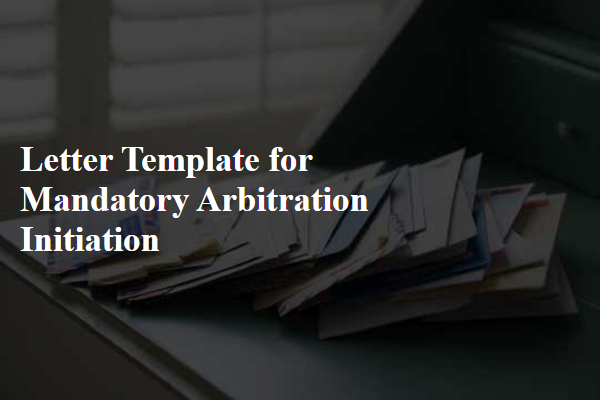
Clear identification of parties involved
Mandatory arbitration initiation requires precise identification of the parties involved in the dispute. This identification must include full names, relevant addresses, and any unique identifiers associated with the entities, such as business registration numbers or social security numbers. For example, if the dispute involves a consumer and a service provider, the consumer's name along with their contact information should be listed alongside the service provider's name, business address, and registration details. Clarity in identifying parties is crucial for the arbitration process, ensuring all relevant documentation and communications reach the correct individuals and organizations involved in the legal proceedings.
Reference to arbitration agreement clause
Mandatory arbitration initiation requires clear communication about the intent to resolve disputes through arbitration as specified in the arbitration agreement clause. The parties involved should reference this clause, typically found in Section 5 of the signed contract dated January 15, 2022. This clause outlines the requirement to submit any disputes arising from the agreement to binding arbitration administered by the American Arbitration Association (AAA) in accordance with its rules. The initiating party must include details such as the nature of the dispute, relevant contract provisions, and a request for the appointment of an arbitrator. Adherence to the outlined procedures ensures compliance with the agreed-upon resolution method.
Statement of dispute and relevant details
Mandatory arbitration initiation requires a clear statement of dispute along with pertinent details for effective resolution. The dispute typically arises from a contractual agreement involving parties such as individuals or corporations. Relevant details should include the specific nature of the disagreement, such as breach of contract, non-payment issues, or service failures. Essential information encompasses the terms of the contract, signed on [insert date], and the geographical location associated with the agreement, like [insert city or state]. Additionally, include the parties' contact information, dates of alleged incidents, and any previous communications or attempts at resolution. Proper documentation like emails, invoices, and correspondence can provide critical context and support the claims made during the arbitration process.
Proposed arbitration location and rules
Mandatory arbitration initiation requires clarity on the proposed arbitration location and rules. The designated location, often a neutral venue such as a conference center in a metropolitan area, plays a crucial role in facilitating the process; places like New York City or San Francisco frequently serve as arbitration hubs, providing accessibility and resources. The governing rules, usually specified by established organizations like the American Arbitration Association or the International Chamber of Commerce, outline procedures and guidelines; these rules cover aspects such as the selection of arbitrators, conduct of hearings, and timelines for submissions. Specifying these details ensures both parties remain informed and prepared, promoting fairness and efficiency in resolution.
Timelines and deadlines for response
Mandatory arbitration initiation requires adherence to specific timelines and deadlines to ensure proper progression in the arbitration process. Parties must initiate arbitration within a prescribed timeframe (often within one year of the dispute arising) as outlined by the relevant arbitration agreement or governing rules, such as those set by the American Arbitration Association (AAA). Upon initiation, the opposing party typically has a limited period (commonly 20 to 30 days, depending on the rules or agreement) to respond to the notice of arbitration. Failure to respond within this deadline may result in default judgments. Furthermore, scheduling of hearings must occur promptly, often within a few months, to maintain adherence to stipulated timelines in most arbitration frameworks, ensuring a timely resolution to disputes without unnecessary delays.

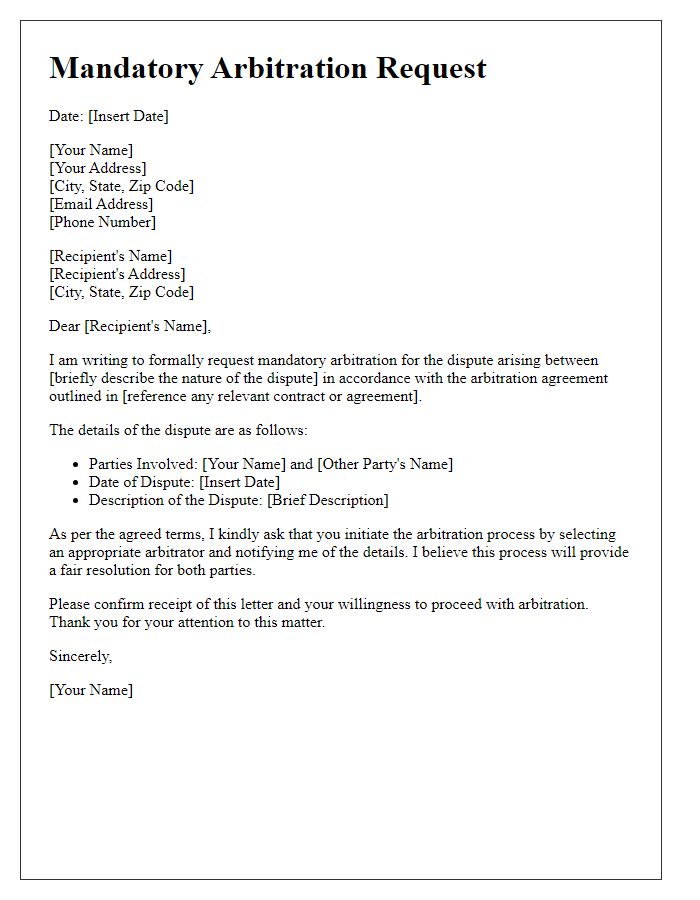
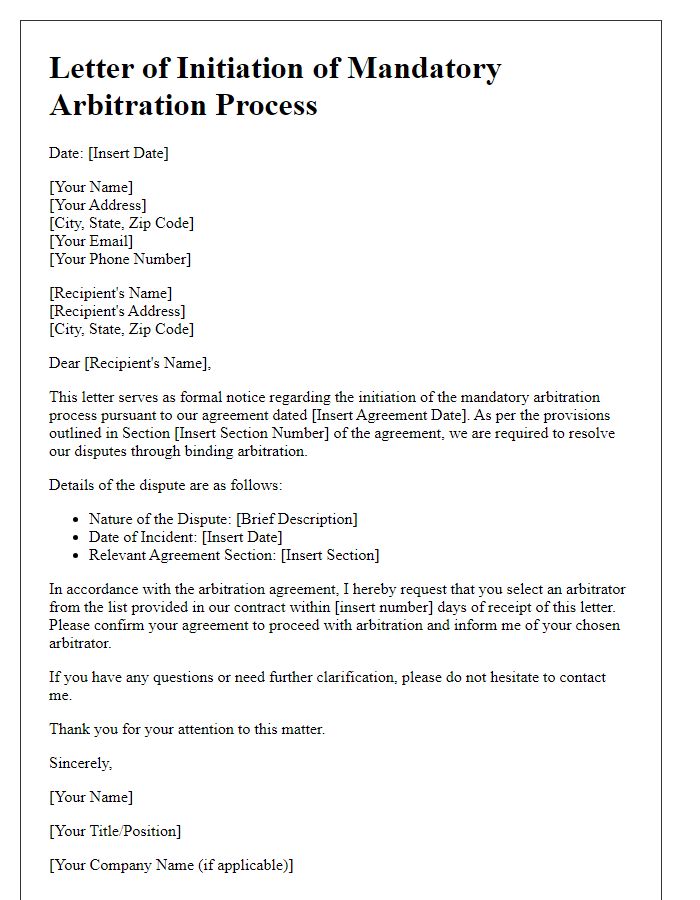
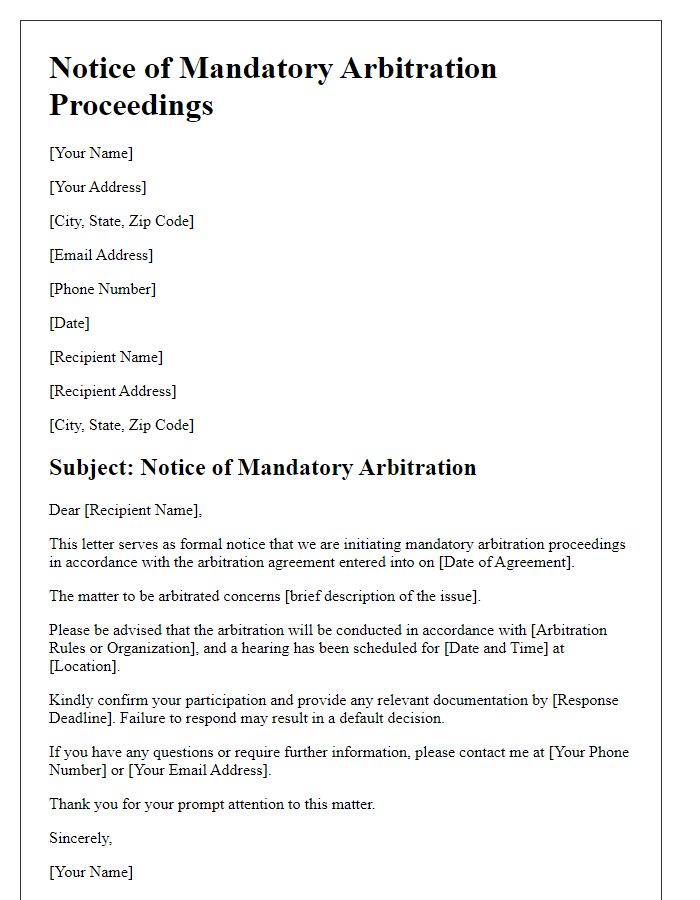
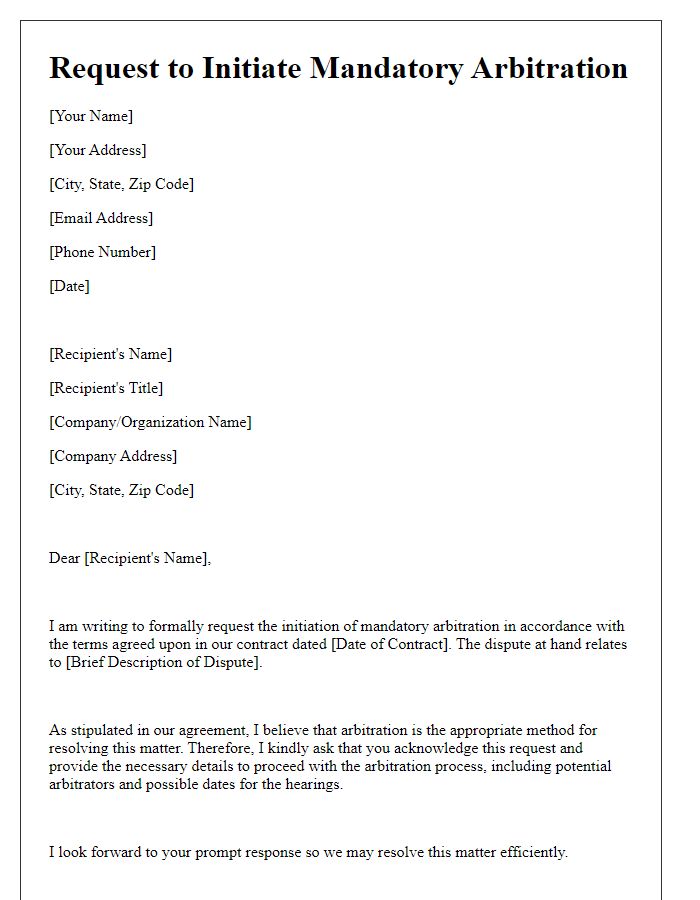
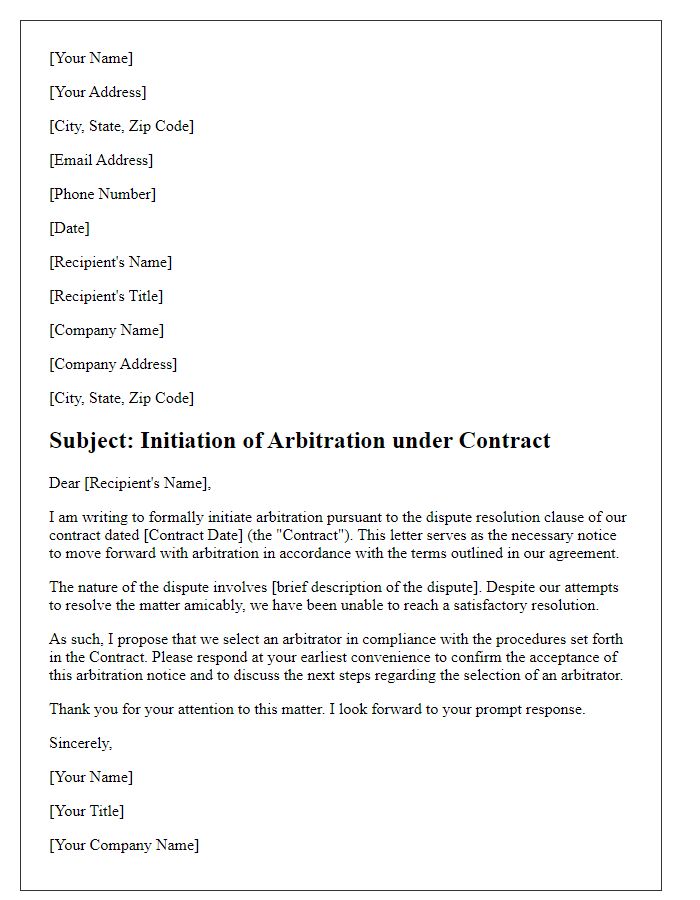
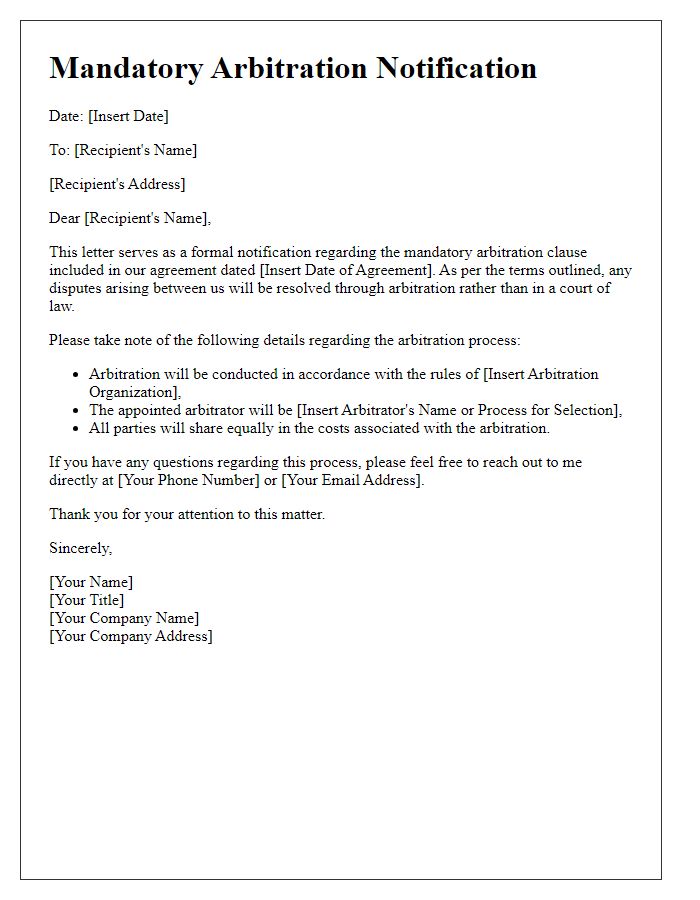
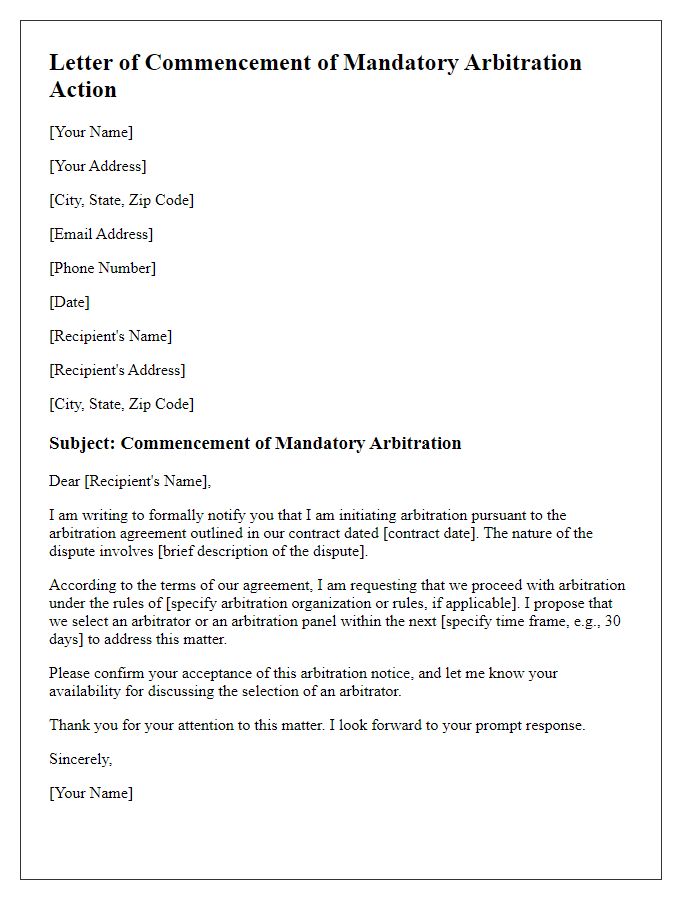
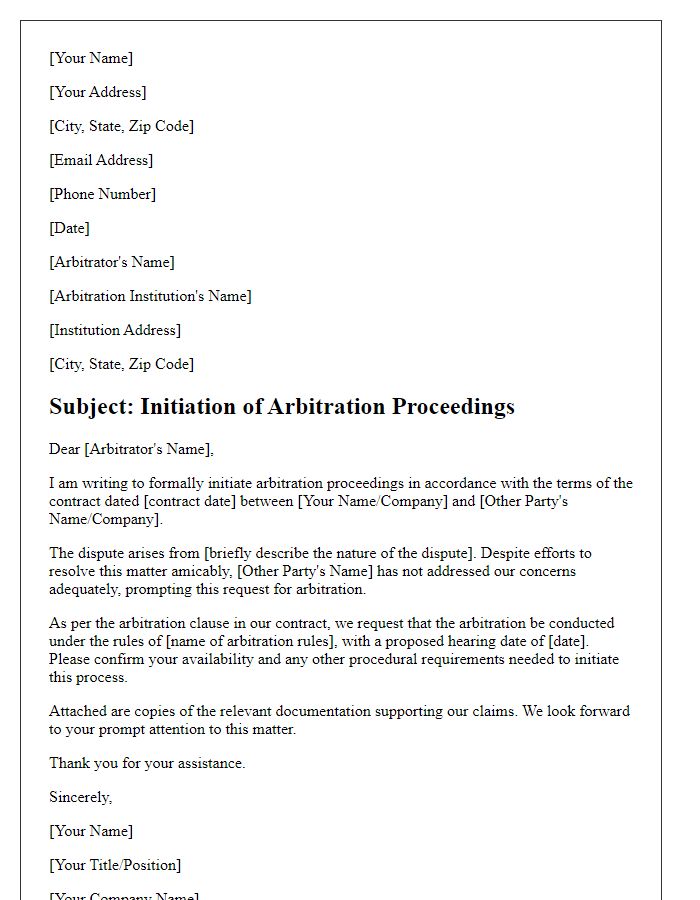
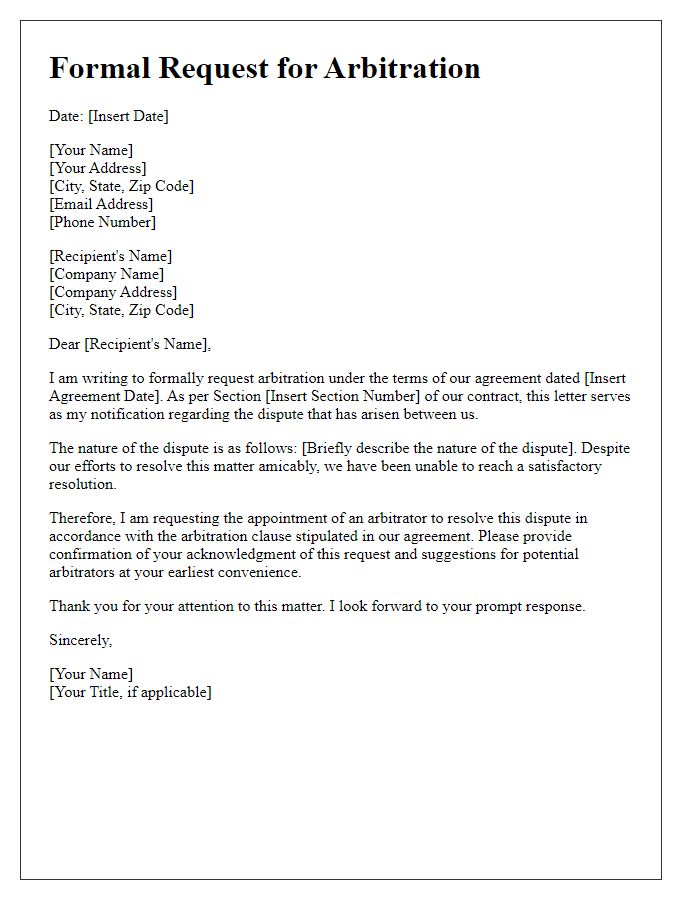
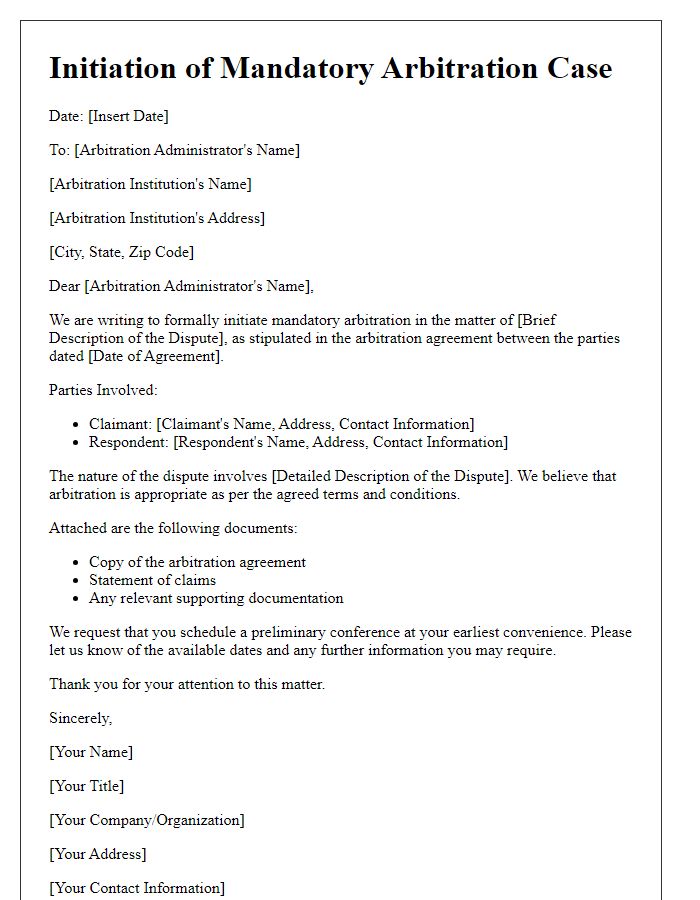

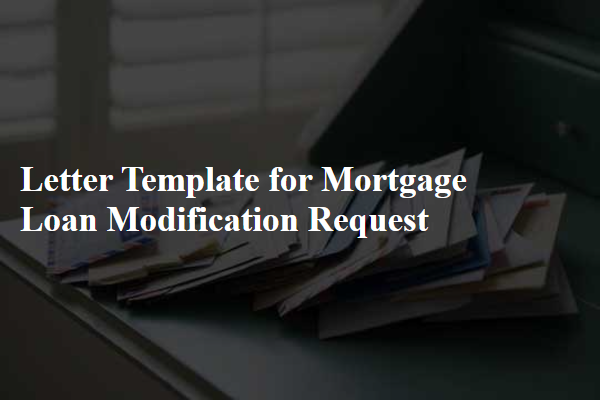
Comments